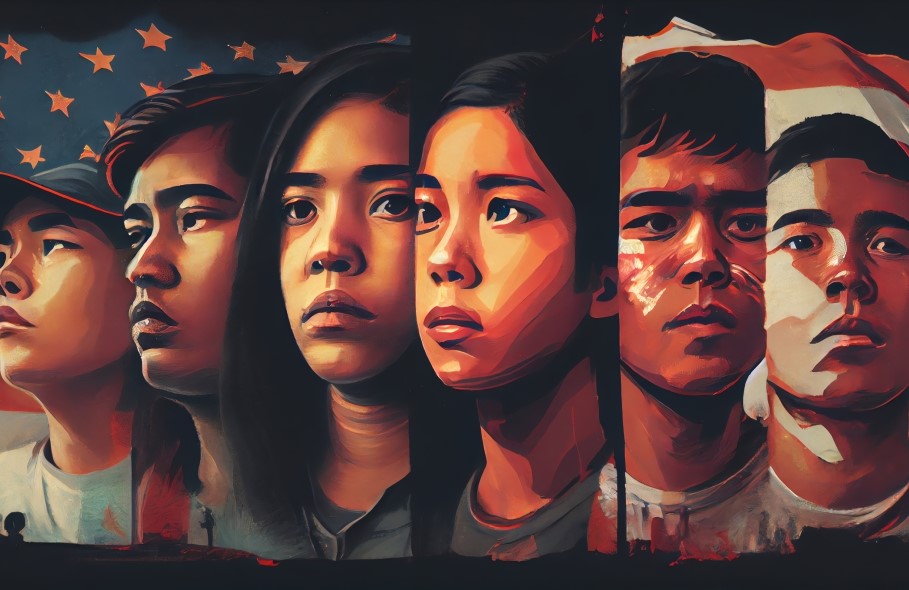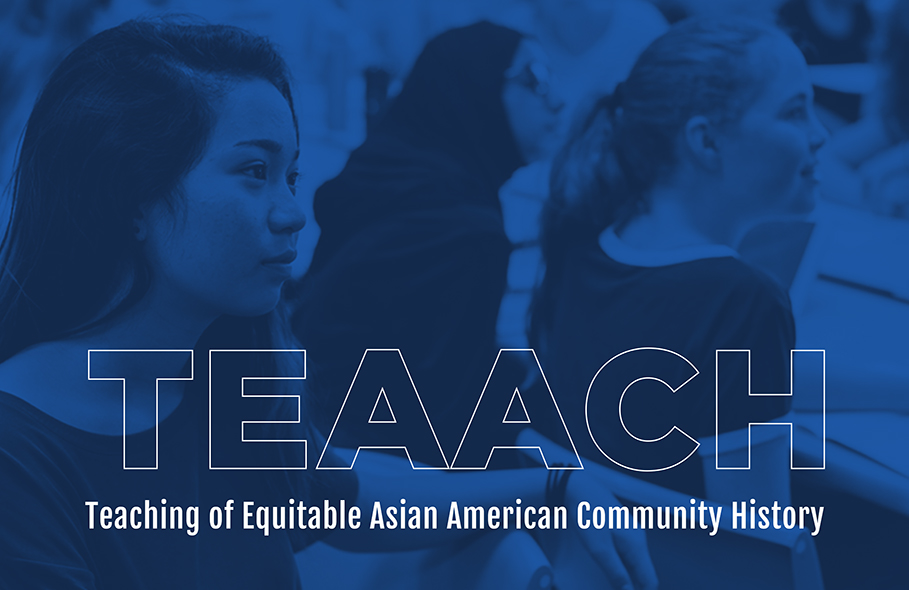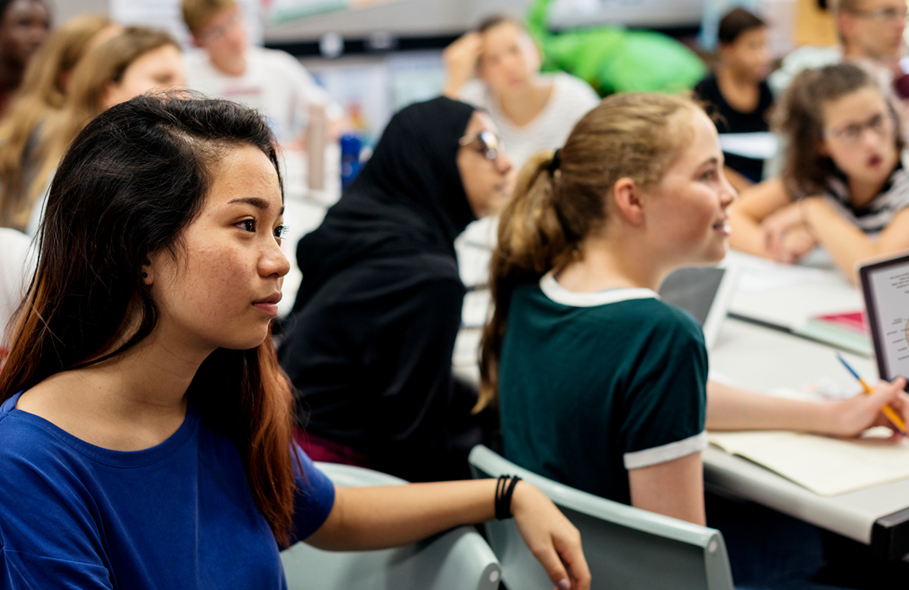TEAACH Your Children Well: Revealing the History of Asian Americans
by Tom Hanlon / Apr 8, 2024

The College of Education is serving as a professional development hub to assist Illinois public school teachers in educating their students about Asian American history.
Sometimes, change can be a slow, tortuous process. But when change is both necessary and long overdue, the time it takes becomes secondary to the fact that it is happening.
Such is the case with the Teaching Equitable Asian American Community History (TEAACH) Act.
TEAACH, passed by the Illinois General Assembly in April 2021, requires public schools in the state to offer a unit of curriculum devoted to the contributions of Asian Americans to the economic, cultural, social, and political development of the United States.
Those units were to be in place beginning with the 2022-23 school year.
To date, Yoon Pak estimates that less than 30 percent of schools have such units up and running. Some of those schools are using modules created by the TEAACH team, consisting of faculty and doctoral students from the University of Illinois Urbana-Champaign and led by Pak, head of Education Policy, Organization and Leadership (EPOL) and Sharon Lee, EPOL teaching assistant professor in the College of Education. TEAACH’s professional development series is sponsored by the College and approved by the Illinois State Board of Education (ISBE) with generous grant funding from The Asian American Foundation.
The series consists of three asynchronous modules and covers an array of topics, from an introduction to Asian American issues and history/herstory to immigration and citizenship to Asian Americans in Illinois to contemporary issues facing Asian Americans to Asian American activism and identity and much more.
High Praise for TEAACH's Modules
The modules have received high praise from the teachers who have used them. “They expressed great appreciation for having this content available to them,” Pak says. “They didn’t know about Asian American history, and we obviously don’t blame them at all, because it was never a part of their core curriculum in school. Now, they can teach about the histories of Asian Americans and show how those histories are a connective fabric in which we all belong.”
So why haven’t more teachers taken advantage of the TEAACH modules?
“Well, teachers are so busy doing what they do every day as teachers,” Pak explains. “It takes mental energy to do the additional work to find out what’s available. We want people to know that they don’t need to do extra work; we’ve done the work for them. Just go to our TEAACH site. That’s been our mission from the get-go.”
Getting the Word Out
Even though the numbers of teachers who have accessed the modules are relatively low, Pak is unfazed.
“I’m still confident that we’ll get the participation rates that we would like to have,” she says. “One of our big goals for this semester has been launching a marketing campaign to let administrators and educators know about the mandate and how we can help them fulfill it.”
TEAACH will host a live webinar on April 23 from 7 - 8 p.m. CST to relaunch the modules to a larger audience and encourage educators throughout the state to take advantage of the professional development series. The professional development series will also be advertised on ISBE’s website, which should help the marketing efforts, Pak says.
“TEAACH has received ISBE micro credential approval,” she says. “That will help with educators who are looking for continuing education credits.”
Each of the series’ three modules takes about 12 hours to complete. Each module has four sections, and each section is worth three professional development hours in the state of Illinois.
The Importance of Asian American History
“I would encourage people to go to our website to learn more about our modules,” Pak says. The content is based on a course that Pak developed and taught for more than 20 years. “We take a social foundations of education approach,” she notes. “Meaning we critique and understand systems of power and structural inequality. We do that from a place of inter-relationality, highlighting the fact that our histories have always been inter-relational.”
Asian American history is important, Pak says, “because it is US history, hands down. And it’s a history that is in relation to other historically disenfranchised populations. We’ve built out our modules so educators can understand the larger implications of, yes, we are focusing on Asian American populations, but here’s how it affects other groups who have faced discrimination in terms of citizenship, in terms of school segregation, and so on. Asian American history has a current-day effect on historically marginalized groups.”
Always Evolving
Pak is pleased with TEAACH’s professional development series but says “at the same time, we know that teaching and learning is never static, so we’re always going to be incorporating new research, new knowledge, expanding to perhaps include more student voices. We need to adapt and change.”
Part of that change may come in the form of a fourth module. “We want to provide a glimpse of the range of inclusive history mandates at Illinois,” she says. “I want a fourth module to introduce other inclusive history mandates that could then be a launching pad in the future for more modules.”
Pak mentions the histories of Indigenous people, of Latinx, of African Americans, and of LGBTQ+ as four examples for potential module expansion.
“TEAACH is an important site for Illinois, because as a flagship and land-grant institution, we are here to serve the public and the state, and the College is in a place to make Asian American history available as freely as possible,” Pak says. “I dream of the College being this professional development hub, especially for online professional development.”

